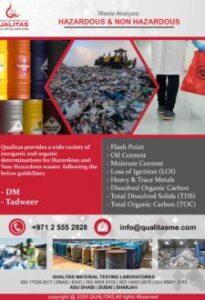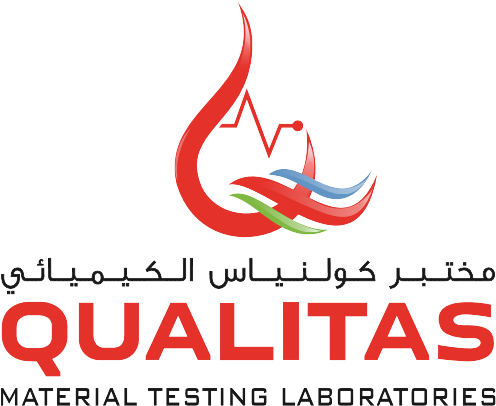A Non-destructive testing (NDT) is the process of looking for flaws or changes in characteristics of materials, parts, or assemblies without harming the part’s or system’s capacity to function. In other words, the part can still be utilized once the inspection or test is over. Further, Modern Non Destructive Testing (NDT) Laboratory in UAE is now utilized in manufacturing, fabrication, and in-service inspections to guarantee product integrity and dependability manage manufacturing processes, cut costs of production, and maintain a consistent quality level. In addition, A product’s integrity must remain intact for it to be functional and safe for the general population. Which is why in-service NDT inspections are performed to check this. Throughout the manufacturing and erection phases of a project. NDT is utilized to check the quality of the materials and joining procedures.
Destructive tests are frequently used to assess the material’s physical qualities. Including impact resistance, ductility, yield and final tensile strength impact strength, and fatigue limit. Moreover, NDT is more efficient in identifying discontinuities and variations in the material’s properties.

NDT Test Methods:
The penetrating medium or the testing apparatus is frequently mentioned in test method titles. Finally, there are now many different test methodologies, but the following six are the most popular:
Magnetic particle testing (MT) -By passing a magnetic current across it, the inspection technique known as magnetic particle inspection may find flaws on the surface of ferromagnetic materials. Further, it may also be used to find flaws in materials that are hidden beneath the surface.
Liquid penetrant testing (PT) – A non-destructive material testing technique called liquid or dye penetrant testing (PT) employs capillary forces to locate and highlight surface holes or fissures. In addition, it can find surface-breaking faults including porosity, laps, and fractures.
Radiographic testing (RT) – To inspect the interior structure of produced components and find any faults or defects, radiographic testing, often known as RT, employs either x-rays or gamma rays.
Ultrasonic testing (UT) – It includes a variety of non-destructive testing (NDT) methods that penetrate an item or substance with ultrasonic waves. These high-frequency sound waves are injected into the material to determine its properties or to look for flaws.
Electromagnetic testing (ET) – In particular, eddy current testing is frequently used to evaluate things at various stages of their lives. Alternating currents are sent into a conducting coil that is held near the test item in eddy current procedures.
Visual Testing (VT) :–
It is the most widely used NDT technique across all sectors. And is based on the inspection of faults that are apparent to the human eye. It enables practical and quick quality control at each stage of the manufacturing or maintenance process.
Qualitas Material Testing Laboratories provides a comprehensive range of industrial testing services for Oil and Gas, Food and Water, Waste Water, and Advanced Products including Environmental Monitoring, Inspection, and sampling services. We are the one-stop solution for your queries like Hazardous waste testing laboratory in UAE or Grease testing laboratory in UAE. Accredited by ISO 17025, we provide the highest standards of quality and technical compliance. Moreover, we work to maintain the quality regulations set by the federal government to comply with guidelines of international standards.
The Environmental Monitoring, Inspection, and Sampling Services offered by Qualitas Material Testing Labs. Moreover, we cover a wide range of industrial testing services. Like for Oil and Gas, Food and Water, Waste Water, and Advanced Products. When you have questions about Grease testing laboratory in the UAE or hazardous waste testing laboratory in the UAE, we are the one-stop shop. We deliver the highest standards of quality and technical compliance and are ISO 17025 accredited. We strive to uphold the federal government’s quality standards to adhere to their prescriptions and meet global norms.
